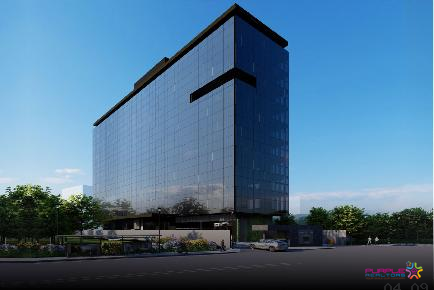
M AGILE BY MALPANI BANER PUNE COMMERCIAL PROJECT
Baner,Pune
Pune
Why do a few prefer to stay on rent if they already are home-owners?
If you don't own a home, buy one. If you own a home, buy another one. If you own two homes, buy a third. And, lend your relatives the money to buy a home, said American investor and philanthropist John Paulson.
So, why are people especially in the metros increasingly giving their own homes on rent and themselves turning towards rental accommodations?
Is it a calculative move?
This trend has been quite prevalent abroad and in recent times, one sees this happening, particularly in the metros and the key reasons attributed to it are:
• The desire to stay close to one's workplace: Many professionals are opting to stay closer to their place of work to curb traffic woes and the extended time one spends on the road travelling to and fro. Additionally, all the leading business centres are situated in the main city where the property prices are on the higher side. Thus, people prefer renting out their apartments in the suburbs and moving closer to their workplace on rent.
• Need for a larger house: A traditional family would include a couple with their children and parents. Hence, soon people start running out of space and at the same time, would not have the financial pool to invest in a bigger house. In such cases, people opt for bigger rental places.
• Taking advantage of the arbitrage opportunity: Many a times, a property might be located in a premier location commanding superior rental yields and the owner wishes to leverage on such a scenario.
This typically happens with senior citizens who own apartments in the city but do not want to sell their homes. Since, their income might not be sufficient to meet all their needs; they end up renting out such homes, thus themselves moving to suburban locations wherein the rental is much lower.
Pros and cons
Renting or buying your own home is a personal choice and is made keeping several aspects in mind. the pros attached to this prevalent trend are aplenty. "Many a times, the rented property is closer to the place of work and the surrounding social and physical infrastructure provides the required support and ease to the everyday schedule. Besides, renting out the owned property also could help the owner offset the home loan burden. Hence, convenience here holds the key."
But there are cons too, which cannot be ignored and are highlighted by our experts.
Since the rental agreement has to be renewed on a yearly basis, it could prove to be a hassle;
Continuously moving from one place to another can alter the lifestyle, particularly of the kids as they will have to keep shifting schools and making new friends;
Finding the right house after the rental agreement has not been renewed can also prove to be an uphill task.
Bear in mind
Drops in a word of caution and tells us to analyse the following factors:
• Overall objective of such an arrangement;
• Trade-off in rental income from owned house vis-à-vis cash outflows while staying on rent should align with the purpose of such an act;
• Due-diligence on documentation (No Objection Certificate, society letters, requisite leave and license agreements) of both the deals;
• Effective monitoring and management of cash flows as well as agreement timelines between the two deals, so as to avoid any additional financial/ emotional pressure;
• Advance planning on future actions at the end of tenure of previous rent agreements and aligning the same with overall objective of such an arrangement.

PK Hillcrest Pimple Saudager Pune 3 and 4 BHK Price Location Floor Plan Review
Pimple Saudager, Pune

The Crown at Gera Isle Royale Bavdhan Pune 3BHK 4BHK
Bavdhan, Pune

The Altius and Ridges 41 by Paranjape Blue Ridge Hinjewadi Pune
Hinjewadi, Pune

M AGILE BY MALPANI BANER PUNE COMMERCIAL PROJECT
Baner,Pune

Baner Central Baner Pune Commercial Project
Baner,Pune

Astra Heights Balewadi Pune Commercial Project For Lease
Balewadi,Pune

SBH Solitaire Business Hub 3 Baner Pune Office Space Commercial Project Spaces For Sale and Lease
Baner,Pune

ABIL Boulevard Koregaon Park KP Pune Commercial Project For Lease
Koregaon Park,Pune

Nandan PROBIZ Balewadi Pune Commercial Project
Balewadi,Pune

Greystone by Tremont Baner Pune Commercial Office Spaces
Baner,Pune

Rahul Altimus Baner Pune Commercial Project
Baner,Pune

Prime Pinnacle Wakad Pune Commercial Project
Wakad,Pune

Trump World Centre Tower Mundhwa Pune Commercial Project
Mundhwa,Pune